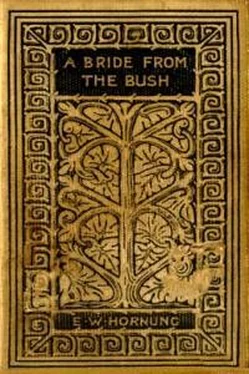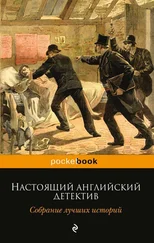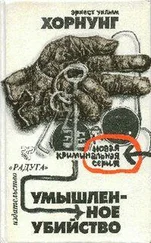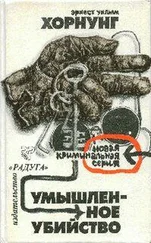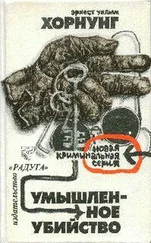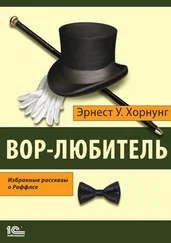There could have been no better cabin for "a life awry" (not even in the Bush, the living sepulchre of so many such) than the Yelkin hut. But it was not the place to forget in. There are, however, strong natures that can never forget, and still live on. There are still stronger natures that do not seek to forget, yet retain some of the joy of living side by side with the full sorrow of remembrance. The boundary–rider's was one of these.
The boundary–rider saw but few faces from the home–station; none from anywhere else. But, one glowing, hot–wind day, early in January, a mounted traveller entered the Yelkin Paddock by the gate in the south fence. He was following the main track to the homestead, and this track crossed a corner of the Yelkin Paddock, the corner most remote from the hut. He did not seem a stranger, for he glanced but carelessly at the diverging yet conterminous wheel–marks which are the puzzling feature of all Bush roads. He was a pallid, gaunt, black–bearded man: so gaunt and so pallid, indeed, that no one would have taken him at the first glance, or at the second either, for Alfred Bligh.
Yet it was Alfred—straight, virtually, from his sick–bed. As soon as he could stand (which was not for weeks) he had been taken on board the steamer. The voyage, it was hoped, would do him good, and he was bent on going—to find his wife. It did not do him much good; the eyes that swept at last the territory of his father–in–law were the sunken, wistful eyes of a shattered man.
Nothing had been heard of Gladys. Granville, indeed, had written to Bindarra, but there had been no reply. Of this Alfred had not been informed. From the first moments of returning consciousness he had expressed himself strongly against writing at all.
So, as he crossed the corner of the Yelkin Paddock, all he knew was that Gladys had sailed for Australia six months before.
"If she is here, she is here," he muttered a hundred times; "and there will have been no warning of my coming to frighten her away. If she is not here—if she were dead—"
His eyes dropped upon the bony hand holding the reins.
"Well, it would be an easier matter to follow her there than here. It would take less time!"
But, as often as this contingency presented itself, his thin hand involuntarily tightened the reins. Indeed, the nearer he got to the homestead the slower he rode. Many a thousand times he had ridden in fancy this last stage of his long, long journey, and always at a hand–gallop; but, now that he was riding it in fact, he had not the courage to press on. He let his tired horse make the speed, and even that snail's pace was, at moments, too quick for him.
At the hour wherein he needed his utmost nerve to meet his fate—his nerve, and the stout heart that had brought him, weak as he was, from the opposite end of the earth, were failing him.
The gate in the west fence was in sight, when Alfred, awaking from a fit of absence, became aware that a man with a cylinder of rolled blankets upon his back (his "swag") was tramping along the track to meet him. For a moment Alfred's heart thumped; he would know his fate now; this man, who was evidently from the home–station, would tell him. Then he recognised the man. It was Daft Larry, the witless stockman, who, being also stone deaf, was incapable of answering questions.
Larry was a short man, strongly built though elderly, and probably less old than he looked. He had a fresh complexion, a short gray beard, and eyes as blue (and as expressionless) as the flawless southern sky. He recognised Alfred, stood in his path, threw down his swag, put his hands in his pockets, and smiled delightedly; not in surprise; in mere idiotic delight. On beholding Alfred, this had been his invariable behaviour. They had beheld one another last a year ago; but last year and yesterday were much the same date to Larry.
"I like a man that is well–bred!" exclaimed Larry, with a seraphic smile, his head critically on one side. On beholding Alfred, this had been his invariable formula.
Alfred stopped his horse.
Daft Larry cocked his head on the other side. "You're not one of the low sort!" he went on.
Alfred smiled.
" You're well–bred," continued Larry, in the tone of a connoisseur. Then, wagging his head gravely: "I like a man that's not one of the low sort; I like a man that is well–bred!"
That was the end, as it always had been. Larry picked up his swag with the air of a man who has proved his case.
Alfred had ridden on some yards, when a call from the idiot made him stop.
"Look there!" shouted Larry, with an ungainly sweep of the arm. "Dust–storm coming up—bad dust–storm. Don't get catched, mister—you aren't one of the low sort—not you!"
Daft Larry had been known to give gratuitous information before, though he could not answer questions. Alfred, instead of riding on, now looked about him. There was sense enough in the warning; though Larry, apparently, did not mind being "catched" himself, since he was plodding steadily on, leaving the station, probably for good, as he periodically did leave it. There was every indication of a dust–storm, though the sun still shone brilliantly. The hot–wind had become wild and rampant. It was whipping up the sandy coating of the plain in every direction. High in the air were seen whirling spires and cones of sand—a curious effect against the deep–blue sky. Below, puffs of sand were breaking out of the plain in every direction, as though the plain were alive with invisible horsemen. These sandy cloudlets were instantly dissipated by the wind; it was the larger clouds that were lifted whole into the air, and the larger clouds of sand were becoming more and more the rule.
Alfred's eye, quickly scanning the horizon, descried the roof of the boundary–rider's hut still gleaming in the sunlight. He remembered the hut well. It could not be farther than four miles, if as much as that, from this point of the track; but it was twelve miles at least from this to the homestead. He also knew these dust–storms of old; Bindarra was notorious for them. Without thinking twice, Alfred put spurs to his horse and headed for the hut. Before he had ridden half the distance, the detached clouds of sand banded together in one dense whirlwind; and it was only owing to his horse's instinct that he did not ride wide of the hut altogether; for, during the last half mile, he never saw the hut until its outline loomed suddenly over his horse's ears; and by then the sun was invisible.
"I never saw one come on quicker!" gasped Alfred, as he jumped off and tethered his quivering horse in the lee of the hut.
The excitement, and the gallop, had made Alfred's blood tingle in his veins. It was a novel sensation. He stepped briskly into the hut.
Almost his first sight on entering was the reflection of his own face in a little mirror, which was neatly nailed to the wall, close to the door. Alfred had never been vain, but he did pause to gaze at himself then; for his face was covered with a thin veneer of sand, as a wall becomes coated with driven snow. He dashed off the sand, and smiled; and for the moment, with some colour in his cheeks and a healthy light in his eyes, Alfred scarcely knew himself. Then he turned his back upon the glass, merely noting that it was a queer thing to find in a boundary–rider's hut, and that it had not been there a year ago.
The door had been ajar, and the window was blocked up. The sand, however, had found free entry through the crevices between the ill–fitting pine–logs of the walls, and already the yellow coating lay an eighth of an inch thick all over the boarded floor and upon the rude bench and table.
Alfred sat down and watched the whirling sand outside slowly deepen in tint. He had left the door open, because otherwise the interior of the hut would have been in complete darkness. As it was, it was difficult to distinguish objects; but Alfred, glancing round, was struck with the scrupulous tidiness of everything.
Читать дальше
